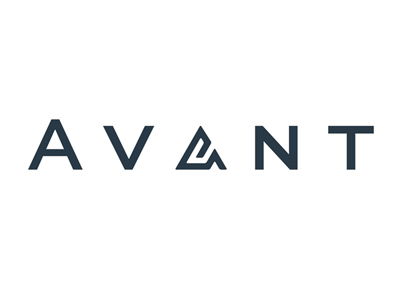Juggling credit cards, personal loans, and rising interest rates? Debt consolidation loans can help you regain control with one monthly payment—often at a lower rate.
Whether your credit card balances are piling up or an adjustable-rate loan is starting to stretch your budget, consolidating your debt can give you some breathing room. A personal loan for debt consolidation may help lower your interest rate, simplify your finances, and put you on a faster path to becoming debt-free.
9 Best Debt Consolidation Loans
The right debt consolidation loan depends on your credit profile, income, and how much you need to borrow. Some lenders specialize in working with fair credit borrowers, while others offer perks like same-day funding or direct payments to your creditors.
Below are our top picks for debt consolidation loans based on interest rates, borrower requirements, loan amounts, and ease of application. Once you’ve narrowed your options, get prequalified to compare offers without affecting your credit score.
1. SoFi
- Loan Terms: 2 to 7 years
- Loan Amounts: $5,000 to $100,000
- Minimum Credit Score: 680
- APR Range: 8.99% to 29.49% (with autopay and direct deposit discounts)
2. Upgrade
- Loan Terms: 2 to 7 years
- Loan Amounts: $1,000 to $50,000
- Minimum Credit Score: 580
- APR Range: 7.99% to 35.99% (with autopay)
3. Upstart
- Loan Terms: 3 or 5 years
- Loan Amounts: $1,000 to $50,000
- Minimum Credit Score: 300
- APR Range: 6.70% to 35.99%
4. LightStream
- Loan Terms: 2 to 20 years
- Loan Amounts: $5,000 to $100,000
- Minimum Credit Score: 660
- APR Range: 6.49% to 25.29% (with AutoPay discount)
5. OneMain
- Loan Terms: 2 to 5 years
- Loan Amounts: $1,500 to $20,000
- Minimum Credit Score: None
- APR Range: 18.00% to 35.99%
6. PersonalLoans.com
- Loan Terms: 3 to 72 months
- Loan Amounts: $250 to $35,000
- Minimum Credit Score: Varies by lender; generally 580+
- APR Range: 5.99% to 35.99%
7. Avant
- Loan Terms: 2 to 5 years
- Loan Amounts: $2,000 to $35,000
- Minimum Credit Score: 550
- APR Range: 9.95% to 35.99%
8. LendingClub
- Loan Terms: 2 to 6 years
- Loan Amounts: $1,000 to $40,000
- Minimum Credit Score: Not specified
- APR Range: 7.90% to 35.99%
9. Discover
- Loan Terms: 3 to 7 years
- Loan Amounts: $2,500 to $40,000
- Minimum Credit Score: Not specified
- APR Range: 7.99% to 24.99%
What is a debt consolidation loan?
Debt consolidation means rolling multiple debts—like credit cards and personal loans—into one new loan with a single monthly payment. The goal is to lower your interest rate and make your finances easier to manage.
Unlike debt settlement, which involves negotiating to pay less than what you owe, a consolidation loan doesn’t reduce your total balance. You’re still responsible for repaying the full amount—just with a potentially better interest rate and a more manageable repayment plan.
Debt consolidation works best when it helps you pay off debt faster or save money on interest. But like any financial move, it only works if you avoid taking on new debt and stick to a solid repayment strategy.

Pros & Cons of Debt Consolidation Loans
A debt consolidation loan can help simplify your finances and potentially save money, but it’s not the right solution for everyone. Here’s a look at the key benefits and drawbacks to consider before moving forward.
Pros
- Lower interest rates – Especially helpful if you have good credit or you’re consolidating high-interest credit card balances.
- Simplified payments – One due date instead of keeping track of multiple bills each month.
- Potential credit score boost – Paying off revolving debt can reduce your credit utilization, which may raise your score.
Cons
- Risk of higher debt – Without a budget in place, it’s easy to start using credit cards again and end up deeper in debt.
- Fees and total cost – Origination fees and longer loan terms could increase how much you pay in interest over time.
- Doesn’t fix spending habits – If overspending caused your debt, a consolidation loan won’t solve the problem without behavior changes.
See also: Debt Consolidation Loans for Bad Credit
How to Apply for a Debt Consolidation Loan
Getting approved for a debt consolidation loan is easier when you’re prepared. Here’s how to approach the process:
- Check your credit and gather financial info – Review your credit score, income, and debt balances. Lenders will want to see proof of income, employment, and your current debts.
- Use prequalification tools – Many lenders let you check your rate with a soft credit pull, so you can compare offers without hurting your score.
- Compare APRs, fees, and terms – Don’t just look at the monthly payment. Weigh the total interest cost, loan fees, and repayment length to find the best fit.
- Submit your application – Once you choose a lender, complete the full application and upload your documents. If approved, you’ll get a loan agreement with all the terms spelled out.
Tip: Applying with a co-borrower can help you qualify for better rates—especially if your credit score is borderline.
Tips for Success with a Debt Consolidation Loan
A debt consolidation loan can help you break the cycle of high-interest debt, but it only works if you follow through with smart financial habits. Here’s how to stay on track and get the most out of your loan:
- Stick to a spending plan – A budget keeps your finances in check and helps prevent you from falling back into debt. Track your monthly expenses, identify unnecessary spending, and make sure your loan payment is part of your fixed costs. The more consistent you are, the easier it is to stay ahead.
- Pay extra when possible – If you can afford to make more than the minimum payment, do it. Even a small extra payment each month can reduce how much interest you pay and shorten your loan term. Look for ways to redirect savings from cut expenses toward your debt.
- Avoid new credit – It’s tempting to start using your credit cards again once they’re paid off, but that defeats the purpose of consolidation. Keep your old accounts open to maintain your credit history, but avoid racking up new balances while you’re still paying off your loan.
Alternatives to Debt Consolidation Loans
A personal loan isn’t your only option for managing debt. Depending on your credit, income, and financial goals, one of these alternatives could be a better fit.
Balance Transfer Cards
These credit cards offer 0% introductory APRs, usually for 12 to 21 months. If you can pay off your balance during the promo period, you could save a lot in interest. Just be aware of transfer fees and the high APR that kicks in after the intro rate ends.
Home Equity Loans
A home equity loan lets you borrow a lump sum using your home as collateral. Interest rates are often lower than unsecured loans, but you risk foreclosure if you can’t keep up with payments. This option works best for homeowners with substantial equity and stable income.
HELOCs
A home equity line of credit works more like a credit card—you borrow only what you need and repay it as you go. HELOCs offer flexibility and relatively low rates, but since they’re secured by your home, they carry the same risk as a home equity loan.
Debt Management Plans
Offered by nonprofit credit counseling agencies, these plans help you repay unsecured debts through a single monthly payment. Your counselor may be able to negotiate lower interest rates and waived fees. These plans usually take three to five years to complete.
Credit Counseling
If you’re not ready to commit to a debt management plan, credit counseling can still help. A certified counselor can help you create a budget, review your debt, and explore the best options based on your financial situation—all without pressure to enroll in a program.
Debt Settlement
This involves negotiating with creditors to settle your debt for less than what you owe. It can be effective if you’re behind on payments and can’t keep up, but it will damage your credit and often comes with steep fees. Make sure you fully understand the risks before working with a debt settlement company.
Bankruptcy
Bankruptcy is a legal process that can discharge or restructure your debts. While it may offer a fresh start, it’s a serious step that can impact your credit for up to 10 years. It should only be considered after exploring all other options.
See also: Should I File Bankruptcy?
Final Thoughts
Debt consolidation loans can be a helpful tool for simplifying debt and reducing monthly payments. By consolidating multiple balances into one manageable loan, you can streamline your finances and focus on paying off debt. However, it’s important to weigh the pros and cons before committing, and ensure you’re choosing the right option for your financial situation.
Whether you decide on a consolidation loan or explore alternatives like balance transfers or debt settlement, make sure to develop a solid repayment plan to stay on track and avoid new debt in the future.












